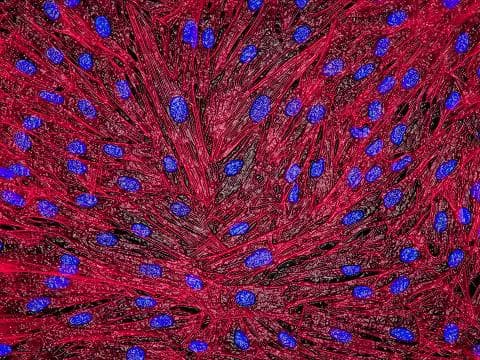
Source Of Cells Used To Generate New Tissue May Be Important To Personalized Medicine
New insights suggest that the source of human cells used to generate new tissues and organs may be an important consideration in personalized medicine. The Lieber Institute for Brain Development (LIBD) today released the results of a study highlighting molecular differences in cells that are gaining traction in the field of personalized medicine. The study, titled "Strong Components of Epigenetic Memory in Cultured Human Fibroblasts Related to Site of Origin and Donor Age," was led by Andrew E. Jaffe, Ph.D., and its relevant findings published inPLOS Genetics.
Significant investments are being made worldwide in precision medicine, concentrated in the curation of stem cell lines for the generation of new tissues and organs. Specialists have primarily relied on skin samples as their source of cells because of the ability of these cells to grow in culture and the relative ease of acquisition and manipulation in the laboratory. As momentum and investment continue to build towards this revolution in personalized medicine, Dr. Jaffe and his team have discovered that both the location and age of cell samples from patients have important considerations when generating patient-specific stem cell lines.
The most popular cell types for generating patient-specific stem cells are skin-derived and therefore receive potentially the highest amount of environmental exposure. LIBD investigators compared fibroblast lines from dura mater of the postmortem brain to those from skin samples in the same individuals. While the cells appear identical under a microscope, this study identified widespread epigenetic and gene expression differences, suggesting strong epigenetic memory from the cell's original location in the body. In addition, researchers discovered sites that were significantly associated with the age of the donor. Dr. Jaffe noted, "These age-related changes are one of the first examples, to our knowledge, of significant age-related changes in a pure cell population that is many divisions from the original cells."
The results of this study show there are significant differences in the cells derived from dura vs skin samples across the lifespan. As the field of personalized medicine continues to grow, this evidence necessitates further exploration into the epigenetic patterns in stem cells used for new tissue and organ generation. Additional research is required to determine which cells to cultivate and when, as researchers question how much epigenetic memory is actually erased when creating stem cell models.
The above post is reprinted from materials provided by PLOS. Note: Materials may be edited for content and length.
Disclaimer: DoveMed is not responsible for the adapted accuracy of news releases posted to DoveMed by contributing universities and institutions.
Primary Resource:
Ivanov, N. A., Tao, R., Chenoweth, J. G., Brandtjen, A., Mighdoll, M. I., Genova, J. D., ... & Hyde, T. M. (2015). Strong Components of Epigenetic Memory in Cultured Human Fibroblasts Related to Site of Origin and Donor Age. bioRxiv, 025288.
Related Articles
Test Your Knowledge
Asked by users
Related Centers
Related Specialties
Related Physicians
Related Procedures
Related Resources
Join DoveHubs
and connect with fellow professionals

0 Comments
Please log in to post a comment.